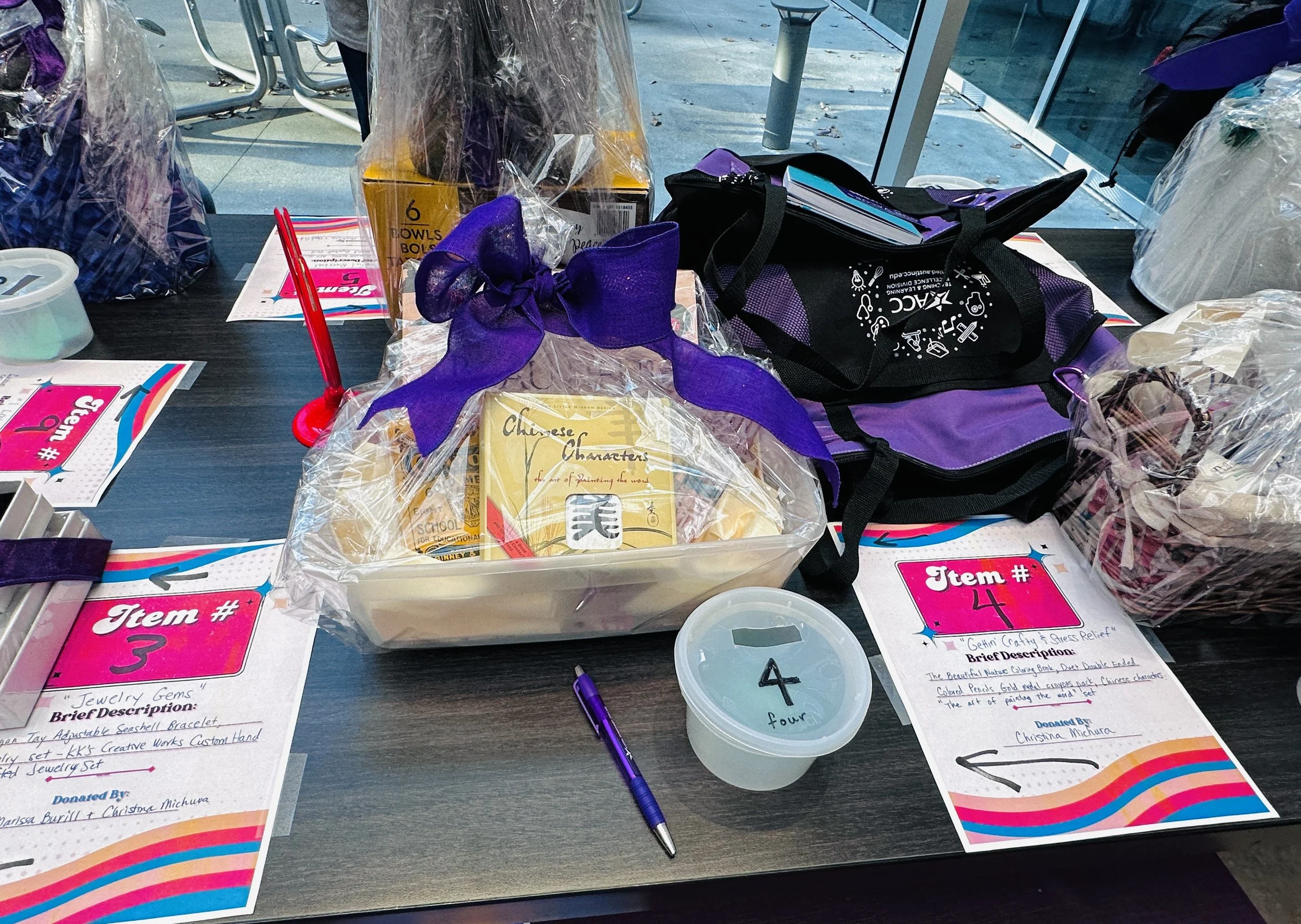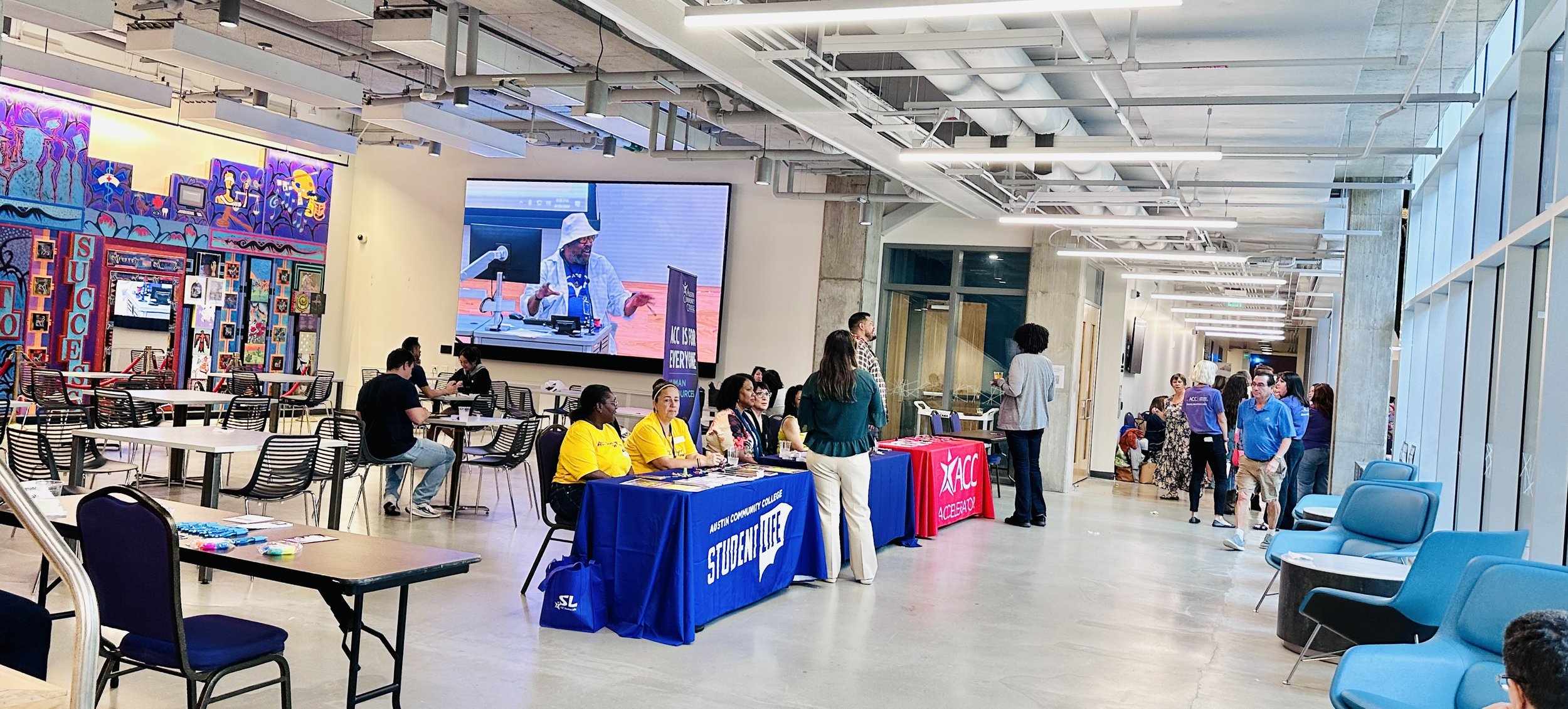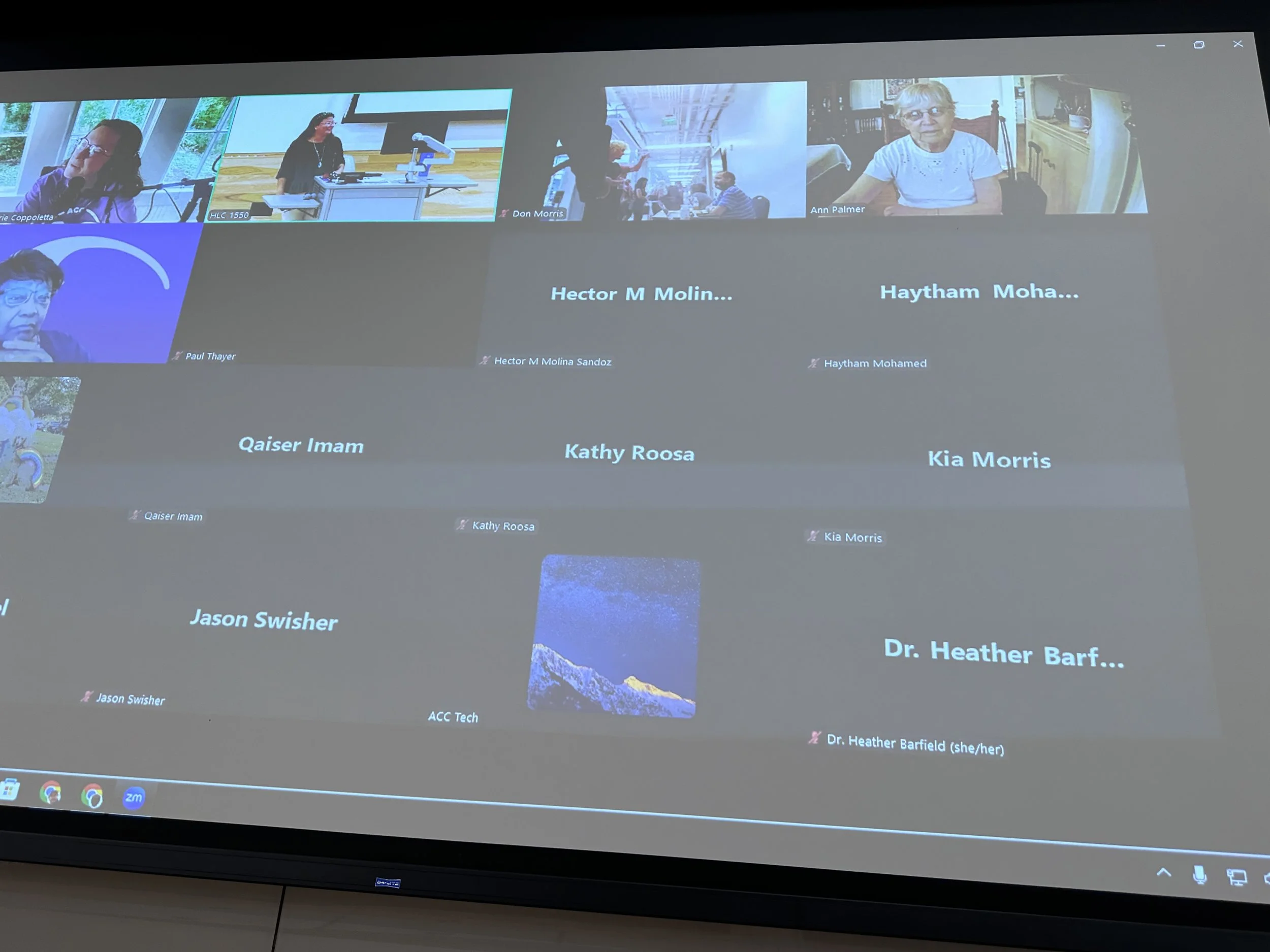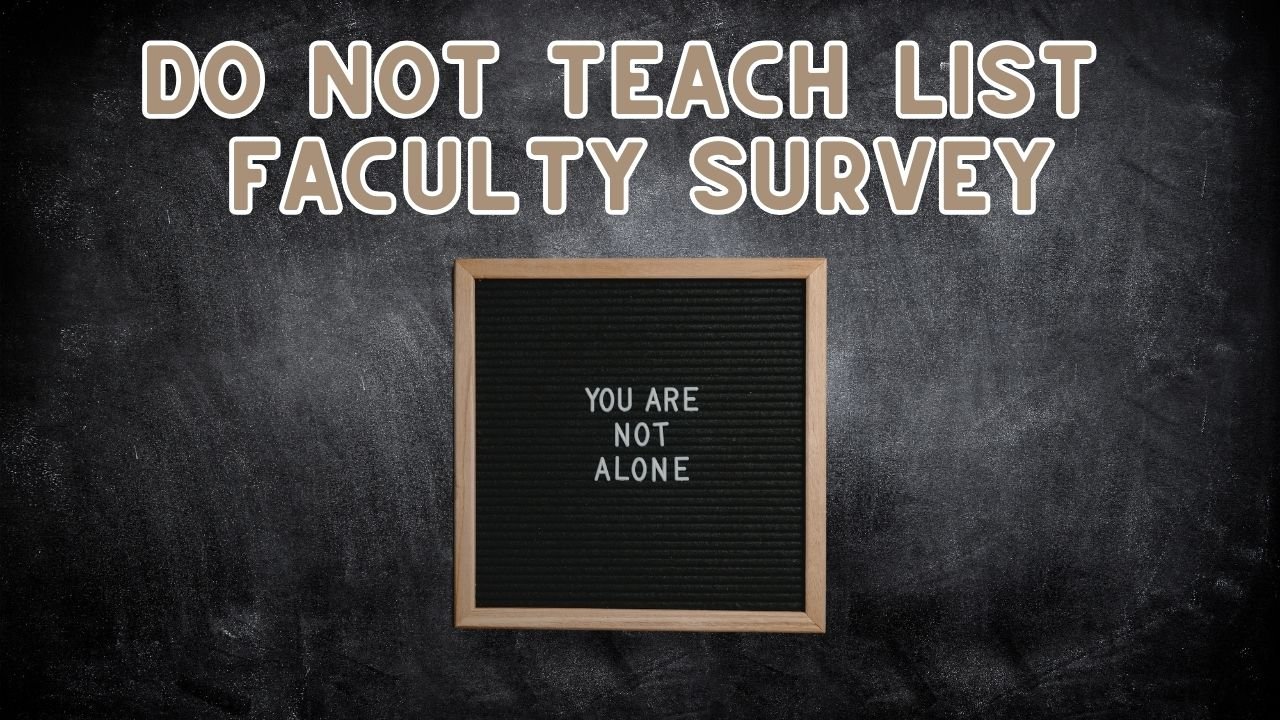
Adjunct professors
Transforming Lives, One Class at a Time

The Adjunct Faculty Association (AFA) kicked our outreach with our Fall “All Adjunct Assembly”
Thank you to the (AFA) Events Committee for their hard work organizing and hosting our event!
all adjunct assembly
Thank you for visiting the Adjunct Faculty Association (AFA) President’s blog.
Fall 2024-Spring 2025 goals are outreach, compensation, and employee protection.
The Adjunct Faculty Association proudly highlights our significant accomplishments from fall 2024 and shares our strategic initiatives for spring 2025.
AFA Presidential Report:
Achievements Fall 2024
&
Strategic Initiatives Spring 2025
adjunct faculty association :Your Voice is Our Voice
OUTREACH
Empowering Connections: Fall 2024 Inaugural All-Adjunct Assembly
The Adjunct Faculty Association hosted our inaugural All-Adjunct Assembly at Highland Campus on Thursday, August 29, 2024. This festive, drop-in, indoor/outdoor/virtual event featured a silent auction and T-shirt fundraiser to raise money for the Employee Emergency Fund, giveaways, free office supplies, and books, a Hyflex classroom demonstration, information tables, networking, camaraderie, and free food and refreshments. This social event was open to all adjunct faculty at ACC.
Connecting Over Coffee: A Recap of Our Fall 2024 Virtual Coffee Chats
We hosted three “Coffee Chats” on Zoom in Fall 2024.
Last year, AFA President Amber Luttig-Buonodono inaugurated our AFA Coffee Chats.Her goal was to conduct a monthly virtual outreach for adjuncts to interact directly with AFA Executive Council members, and it was a huge success. The AFA successfully addressed various issues through a more interpersonal approach. We also recruited new adjuncts to run and get elected as campus representatives to become actively involved in the AFA.
Thank you to our new campus representatives, Gretchen Harries, Chandrasekharan (Chandra) Vanajkshi, and Andrew Costigan, for your involvement in the AFA.
This year, I expanded our Coffee Chats and added professional development opportunities for attendance. We wrapped up our last Coffee Chat with a lively virtual backyard bash.
To view more details on past and future events, please visit the “Coffee Chats” page.
Fall 2024 AFA President Outreach: Engaging Public Speaking Events for Employee Associations
October 18, 2024 - ACC Leadership Academy Program: Employee Association Presentation
December 06, 2024 – Faculty Faculty Development and Evaluation Office: "Welcome Reps" New Riverbat Faculty
Empowering Growth: Professional Development Opportunities for All Adjuncts at AFAEC Fall 2024
The Adjunct Faculty Association invited adjuncts from across the college to participate and earn professional development credits by attending the December 2024 AFAEC Worksession.
Voices of ACC: Empowering Adjuncts Through Storytelling and Discussion: Passionate About Pedagogy Podcast
I created a podcast to provide a platform for meaningful outreach focusing on the unique stories of ACC employees and feature key issues impacting adjuncts at Austin Community College. Each episode delves into key issues that adjuncts encounter, fostering a supportive space for discussion and collaboration among educators.
COMPENSATION
Advocating for Fairness: Amber Luttig-Buonodono's Push for Mileage Reimbursement for ECS/ECHS Adjuncts
A significant area of focus has been the mileage reimbursement for ECS (Early College Scholars) and ECHS (Early College High School) adjuncts, as well as those teaching across multiple campuses. Leading this important initiative is our Immediate Past President, Amber Luttig-Buonodono.
"Building a Stronger Future: The Launch of Our Adjunct Staffing Committee and Collaboration with Student Voices"
The Adjunct Staffing Committee has been several years in the making, and this year, we successfully staffed our first team. We also collaborated with student government to identify student representatives for this committee.
Chair of the Adjuncts: David Albert
Adjunct Faculty, Transfer: Don Morris
Adjunct Faculty, Transfer: Ping Chu
Adjunct Faculty, Transfer: Marissa Burill
Adjunct Faculty, Distance Education Teaching: Amber Luttig-Buonodono
Adjunct Faculty, Dual Credit: Chandrasekharan (Chandra) Vanajkshi
Adjunct Faculty, Workforce/Continuing Education: Suzon Tropez Holmes
Adjunct Faculty, Workforce/Continuing Education: Noy “Reno” Dudley
Adjunct Faculty, Workforce/Continuing Education: QueenSamantha R. Ackers
Current Adjunct Pay Rates
Effective the Fall 2024 semester, adjuncts will be paid for substitute work at $1.88 per minute of scheduled class time. This adjunct substitute rate is tied to the FY25 minimum Ph.D. LEH rate of $1,500.00.
Adjunct Committee, Departmental Meetings, Other Departmental Assigned Projects Rate:
Effective the Fall 2024 semester, adjuncts will be paid $61.80/hour for participation in ACC committee, Department Meetings, and assigned departmental projects. This adjunct meeting rate is also tied to the FY25 minimum Ph.D. LEH rate of $1,500.00.
Additional Updates from Shared Governance
On October 11, 2024, the College Accessibility Committee (CAC) at Clare Wolf College celebrated a significant achievement with the unanimous passage of a resolution granting priority registration to students with disabilities. This crucial step enhances access to courses and supports an equitable academic experience.
In a Blackboard Ultra Transition Team meeting on October 4, 2024 I suggested that the Student Government Association (SGA) join the transition team, allowing students to have a voice in advocacy efforts. Following this, I met with Myles, the ASG President, on October 7 to discuss collaboration.
PROTECTION
Enhancing Virtual Teaching through Diverse Voices: Insights from the Blackboard Ultra Transition Committee
The Blackboard Ultra platform has provided an opportunity to enhance the accessibility and effectiveness of virtual teaching. As a Blackboard Ultra Transition Team member, I've witnessed collaboration across the college, and adjuncts' concerns have been affirmed.
One of the key areas we focused on in the committee was the importance of inclusion in our training programs. Our faculty from different disciplines have unique perspectives. Some may prefer a highly interactive approach, whether in person or virtual. Others are self-directed learners based on previous experience in technology.
Resources are located at this page, there is even a countdown timer =)
The Debate Over Blackboard Ultra Training: Flexibility for Faculty
The Debate Over Blackboard Ultra Training: Flexibility for Faculty
Recently, a proposal emerged suggesting that completing Blackboard Ultra training should become a requirement for all faculty members to be eligible to teach classes. The AFA advocated that such training remain optional.
There was healthy discourse at the meeting, and the committee decided to keep the training optional,
ACC is fostering an environment where adjuncts feel empowered to learn at their own pace without the fear of being excluded from teaching opportunities. The Blackboard Ultra Transition Team has focused on enhancing support structures for adjuncts for both in-person and virtual, synchronous, and asynchronous learning.
Optional training allows adjuncts to choose their paths while still contributing meaningfully to the content delivery landscape for our students. The AFA is thankful for the collaboration and for hearing adjunct concerns, and we are optimistic that ACC will continue to create a supportive and effective teaching community for all faculty members who serve our students.
Share Your Thoughts: ASAC Meeting on Blackboard LMS Minimum Standards Guidelines
As we approach the forthcoming ASAC (Academic & Student Affairs Council) meeting scheduled for February 7, 2025, we invite you to submit your feedback on Minimum Standards Guidelines for the Blackboard Learning Management System (LMS), particularly as they pertain to administrative rules.
We have until the end of the day on January 31, 2025, to submit our comments and suggestions.
AFA Copy of DRAFT: Blackboard Learning Management System Minimum Standards Administrative Rule 11...
AFA Copy of DRAFT: Blackboard Learning Management System Minimum Standards Guideline/Procedure 11...
Grievance AR Shared Governance Appointments - [insert content here]and format/align
outreach goals
spring 2025
voices of adjuncts
Your Voice Matters: Stay Informed on ACC Administrative Rules Impacting Adjunct Faculty Equity
Please be on the lookout for email updates throughout the semester regarding critical ACC Administrative Rules that will require your feedback. Your insights are essential in shaping these policies to ensure equity for our adjunct faculty.
It is crucial that we come together as the adjunct community to voice our concerns and experiences, so we can advocate for fair treatment and support for all professors. Your participation will play a significant role in driving positive change within ACC.
open forum AFAEC meetings
All Adjuncts are Welcome to Join AFA Executive Council Meetings
In our spring 2025 AFAEC meetings, we will strive to create a proactive environment where adjuncts can voice their concerns, share their experiences, and collaborate on effective strategies.
By adding a section to our agendas and providing a 20-minute segment for adjuncts to deliver three-minute speeches, we hope to cultivate a supportive network and enhance our collaborative understanding of critical issues with which adjuncts are concerned.
Sign Up To Speak Adjunct Advocacy at AFAEC Meetings
Your Top 3 Concerns for AFAEC to place on agenda
Attending these meetings will also provide ACC adjuncts with professional development.
“Coffee chats” Reloaded
We Invite You to Our 2025 Coffee Chat Series for Adjunct Faculty!
As adjunct faculty members, we often face unexpected challenges in our professional journey. Last year, we hosted a successful Coffee Chat focusing on Emergency Communication, allowing adjuncts to earn professional development credits while fostering a sense of community.
This year, we’re excited to build on that foundation by addressing key issues that often surprise adjuncts, enabling us to be proactive in our professional development.
CAMPUS afa “DONUT DAYS” ARE AROUND THE CORNER
Stay tuned for more details.
Spotlight on Adjuncts
Celebrating Our Past, Embracing Our Future: Honoring Adjunct Faculty and Welcoming New AFA Leaders
As we move forward into another vibrant academic semester, it's the perfect time to reflect on the tremendous contributions of past Academic Faculty Association (AFA) officers and welcome our new campus representatives. We also want to honor adjuncts across the college for the talent they bring to ACC. Stay tuned for new releases of the Passionate About Pedagogy Podcast.
Spotlight on Adjunct Faculty: Share Your Story on the Passionate About Pedagogy Podcast!
Future episodes of the Passionate About Pedagogy Podcast will shine a light on the incredible work and experiences of adjunct faculty across our college.
This initiative is all about celebrating the diverse voices that contribute to our educational community and sharing your unique stories and insights.
If you’re an adjunct faculty member and would like to be interviewed for an upcoming episode, I’d love to hear from you!
Please reach out to me at lcoppole@austincc.edu
all adjunct assembly
Stay tuned for more details including a video from the Fall 2024 All Adjunct Assembly.
compensation goals spring 2025
compensation & tOC
Making the Case for MSTA Status: Paula King's Insights on Equity and Opportunity for Adjunct Faculty
Paula King has written a brief on the importance for MSTA status for adjuncts. Her brief states,
“Limiting Multiple Semester Term Appointments to certain departments while leaving others without this facility amounts to an unfair practice that upsets the principles of justice, professional appreciation, and institutional consistency at the college. Adjunct faculty in all departments are as crucial in the mission of offering quality education, and offering equal opportunities for recognition and advancement is important. The main reasons why MSTAs need to be extended to adjunct faculty in all departments are briefed below.”
Professor King outlines four reasons: Equity in Recognition and Opportunity, consistency Across Departments, Quality Faculty Retention, student Success and Continuity, Unfair Disparities Between Departments, Compatibility with Institutional Mission.
December Work Session Recap: Insights and Strategies for AFAEC's January 2025 Goals
In December, we welcomed all adjunct faculty to the AFAEC Work Session, an engaging opportunity to share ideas and strategies for improvement within our community. Queen Samantha Ackers led a thought-provoking presentation on her Theory of Change, titled "Demonstrated Practices of Care from Employees." David Albert, chair of the AFA Compensation Committee, also presented critical insights during his presentation.
As we move forward into January, our primary focus will be to synthesize the key points from these presentations along with Paula King's MSTA brief. By doing so, we aim to align our AFA strategic goals with the framework of the Theory of Change, ensuring that our initiatives are rooted in meaningful practices.
“DO NOT TEACH LIST” survey
Voices of Adjunct Faculty: Navigating the 'Do Not Teach' List in Dual Credit and Early College Programs
Adjunct Faculty are crucial in delivering Dual Credit and Early College High School (ECHS) courses, often being the primary instructors in these programs. However, many adjuncts face significant challenges in this capacity, including experiences of being placed on a "do not teach" list" by Campus High School Relations staff.
While the administration has acknowledged the problematic nature of such a list and has committed to establishing a fair and transparent process for addressing concerns regarding faculty assignments, we recognize the importance of gathering feedback from adjuncts about their experiences.
We invite you to share your positive and negative experiences related to teaching these courses, including any instances of not being invited back to teach at or for a campus or choosing to withdraw from this modality altogether. Your insights are invaluable in helping us improve the process and effectively support our adjunct faculty.
Please share your name and contact information below if you feel comfortable having us follow up on your experiences. Otherwise, your response remains completely anonymous.
protection goals
spring 2025
Student Compliant process
Addressing Non-Academic Student Complaints: The Need for a Balanced Appeals Process
In our commitment to fostering a fair and equitable educational environment, we are currently advocating for significant changes to address the treatment of non-academic student complaints involving faculty members. During the last week of fall 2024 the AFA created a Students Complaints Ad Hoc Committee to address the need for a balanced appeal process for ACC employees responding to non-academic student complaints. I have asked Amber Luttig-Buonodono to chair this committee. As it stands, the current process heavily favors students by allowing them three levels of appeal, while faculty are left with limited options. This imbalance calls for a comprehensive reevaluation of the existing system.
The absence of a structured appeals process for faculty creates a problematic dynamic. Faculty members—whether adjunct or full-time—are devoted to serving our students and principles outlined in the Theory of Change at ACC. However, when faced with a student complaint, their options to answer or to appeal a decision made by a supervisor are exceedingly limited. Currently, the only route available for faculty to contest a decision is to file a complaint or grievance, which can be a cumbersome and stressful process. This not only undermines faculty morale.
We believe a more impartial approach is necessary. By implementing a three-tiered appeals process for faculty, similar to that which students currently enjoy, we can create a system that is more just and balanced. Here’s how our proposed process could work:
1. Initial Review: The faculty member should have the opportunity to discuss the complaint with their supervisor to understand the basis of the complaint and clarify any misunderstandings directly. This step encourages dialogue and resolution before escalating the issue.
2. Formal Appeal: Should the matter still remain unresolved, a third level of appeal could involve an external body or a panel that includes faculty, administration, and possibly student representation. This would ensure a thorough and balanced examination of the case from multiple
3. Final Review: If the faculty member feels that the outcome of the initial review was unjust, they should be able to submit a formal appeal to a designated committee. This committee should consist of faculty peers who can impartially assess the situation and provide insights based on professional experience.
It is essential to recognize that fostering a healthy academic environment requires accountability on both sides—students and faculty alike. By introducing a fair appeals process for faculty, we can ensure that no party is left feeling powerless or unheard. This change could encourage a culture of transparency and trust, where complaints are addressed constructively rather than punitively.
We encourage adjuncts to share their thoughts on this proposal as we continue to refine our approach. Engaging in an open dialogue about improving the complaint process will ultimately serve our entire academic community better and lead to an atmosphere where both students and faculty can thrive. Together, we can work towards a system that upholds the principles of fairness, respect, and student responsibility.
employee grievances
Strengthening Employee Grievance Policies: The Need for Impartiality in Workplace Concerns
In any workplace, the ability for employees to voice their concerns and grievances is crucial for maintaining a healthy, productive, and fair environment. One glaring flaw in the current grievance person is the process where the first step may involve a hearing in front of the very person against whom the grievance is lodged. This arrangement not only creates an uncomfortable atmosphere for the employee but also undermines the integrity of the grievance process.
When an employee must present their case to the individual they are complaining about, it places them in a vulnerable position. Many employees may feel intimidated, fearing retaliation or being dismissed outright. This fear can deter them from voicing legitimate concerns, leading to unresolved issues impacting workplace culture over time. It’s essential that ACC employees feel safe and supported when raising grievances.
Additionally, when the grievance is evaluated by someone personally involved, objectivity is compromised. To ensure fairness, the grievance process must be managed by an impartial party without personal stakes.
The AFA looks forward to working with other shared governance associations to strengthen employee protections.
The AFA is also requesting a process for a policy or a "SOP" for a timeline for a supervisor to respond to a complaint that are being addressed by a department outside of a formal process.
adjunct REPRESENTATION
Bridging the Gap: Advocating for Greater Adjunct Representation in Shared Governance at ACC
In today’s educational landscape, shared governance is essential for decision-making that affects adjunct faculty at ACC. Effective governance depends on diverse representation within committees, promoting richer discussions and ensuring that various perspectives are taken into account. This collaborative approach fosters greater engagement and leads to more equitable outcomes.
While making appointments for shared governance committees this year, I observed an inequity in representation, particularly considering the significant number of adjuncts teaching at ACC.
For a detailed breakdown of full-time versus adjunct faculty on each committee, please see the hyperlinks below.
Academic & Student Affairs Council:
4 full-time vs 3 adjuncts
Curriculum and Programs Committee:
8 full-time vs 3 adjuncts
12 full-time vs 5 adjuncts
Faculty Development and Evaluation Committee:
5 full-time vs 2 adjuncts
Information Technology Committee:
12 full-time vs 3 adjuncts
















